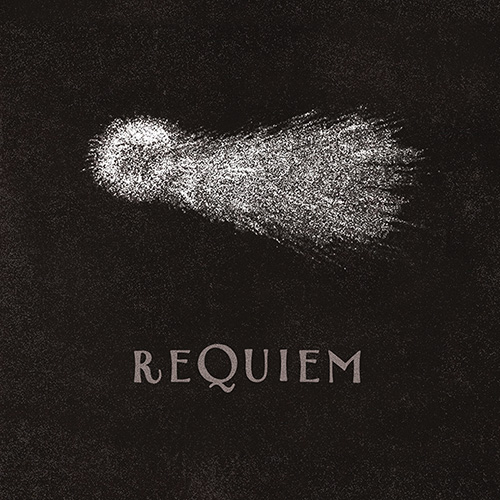
Novoselie
consort:
Anton Izgagin
Andrey Berezin
Sergey Filchenko
Sergei Poltavsky
basso continuo:
Roust Poziumski
Vladimir Volkov
Daria Borkovskaya
Questa Musica
choir
soloists:
Alisa Ten
Marfa Semyonova
Roman Rasskazov
Vladimir Krasov
cornet à bouquin:
Oleg Maryakhin
percussion:
Elysei Dregalin
Даже вышесказанная фраза малопонятна широкой публике, не говоря уж о названиях и смысле латинских псалмов канонического реквиема. Что касается людей сведущих, в силу, например, принадлежности к католической церкви латинского обряда, то и для них, я уверен, эти тексты лишены того животрепещущего апокалиптического смысла, которым они были наполнены для человека в эпоху барокко или в более ранние времена.
То же происходит и с православными аналогами заупокойной мессы. В силу своей архаичности, для человека не вовлечённого с детства в сферу, звучание и смысловой ряд церковно-славянского языка, текст зачастую просто непонятен, а если и понятен, то, за редким исключением, воспринимается формально, как некие шаблонные фразы и его восприятие лишено актуальности сопричастности человеческому чувству потери и молитвенного экстаза, кроме тех случаев, когда человек лично сталкивается с такой потерей.
Именно эти соображения, а также в целом моя любовь к некоторым старым жанрам, каковыми являются например “петровские канты”, или “куртуазные арии”, и желание вновь сделать их актуальными, доступными современному человеку, привели меня к размышлениям об основных постулатах псалмов Реквиема, “несущих” смыслов каждого псалма. Также и событийный ряд, сопутствующий человеку моего времени и географического положения способствовал этим размышлениям, которые и легли в основу текста.
Что касается музыки, здесь я остался верен своей концепции “современной музыки для старинных инструментов” и в основу инструментовки лёг любимый мною консорт виол. Однако, глобальность темы и преследовавшие меня образы апокалипсиса потребовали от меня значительного расширения вокального состава и кроме солистов в этой 11частной оратории задействован хор грешных и/или праведных душ. Так же грёзы сцен Страшного Суда и трубящих ангелов привели меня к необходимости включения в партитуру цинка (cornette), ренессансного духового инструмента невиданной красоты звучания и ударных, которые способствуют синтезу барочной эстетики Реквиема с рокерским драйвом, присущим некоторым его частям.
Таким образом, за два с половиной месяца, проведённых в апокалиптических, но при этом на редкость реальных видениях горящих городов, выжженых полей, во множестве предстающих перед Вышним Престолом человеческих душ и т.д., были созданы 11 частей Реквиема, которые и представлены на этом альбоме.
Руст Позюмский
Even the above phrase is little understood by the general public, not to mention the names and meaning of the Latin psalms of the canonical Requiem. As for people who are knowledgeable, for example by virtue of belonging to the Catholic Church of the Latin rite, even for them, I am sure, these texts are devoid of the burning apocalyptic meaning with which they were filled for a person in the Baroque era or in earlier times.
The same is true of the Orthodox analogs of the requiem Mass. Due to its archaic nature, for a person who has not been involved since childhood in the scope, sound and meaning of the Church Slavonic language, the text is often simply incomprehensible, and if understood, then, with few exceptions, it is perceived formally, as some template phrases and its perception is deprived of the relevance of involvement with the human feeling of loss and prayerful ecstasy, except when a person is personally confronted with such a loss.
It is these considerations, as well as in general my love for some of the older genres, such as the “Petrine cantos”, or the “courtois arias”, and the desire to make them relevant again, accessible to modern man, that led me to reflect on the basic tenets of the Requiem psalms, the “bearing” meanings of each psalm. Also the series of events accompanying a person of my time and geographical location contributed to these reflections, which formed the basis of the text.
As for the music, I stayed true to my concept of “modern music for ancient instruments” and the instrumentation was based on my favorite consort of viols. However, the globality of the theme and the images of the apocalypse that haunted me required me to expand the vocal line-up considerably, and in addition to the soloists, this 11-part oratorio features a choir of sinful and/or righteous souls. Also the reverie of the Last Judgment scenes and trumpeting angels led me to include in the score the zinc (cornette), a Renaissance wind instrument of unprecedented beauty of sound and percussion, which contribute to the synthesis of the baroque aesthetics of the Requiem with the rocker drive inherent in some of its parts.
Thus, during two and a half months spent in apocalyptic, but at the same time very real visions of burning cities, scorched fields, a multitude of human souls appearing before the Supreme Throne, etc., 11 parts of Requiem were created, which are presented on this album.
Roust Poziumski